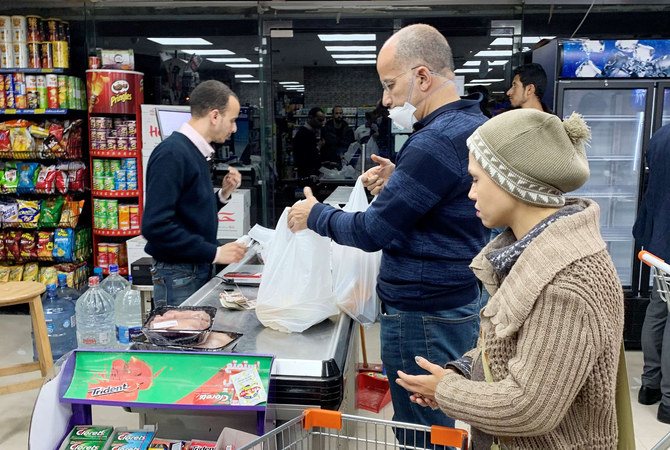RIYADH: While the world is experiencing a current tightening cycle, economists warn that 13 of the past 16 tightening cycles resulted in recessions.
Different countries across the world are experiencing different economic issues caused either due to higher oil prices or supply chain disruptions due to COVID-19 and the ongoing Russian-Ukraine conflict.
The Egyptian pound dropped nearly 14 percent, Ghana’s central bank announced the biggest interest rate hike in a generation, and the Canadian dollar strengthened to its highest level in nearly two months against the greenback.
Recession
Thirteen of the past sixteen tightening cycles resulted in recessions, and we’re in one, the independent macroeconomic research group Capital Economics said in its most recent publication.
According to Capital Economics, meetings of the Federal Reserve, Bank of England and European Central Bank showed that plans to tighten policy have not changed.
It predicts that the focus on regulating inflation and second-round impacts on wages and prices may end up tipping the economy into recession.
Since the late 1970s, the US, the UK and the later formed European Central Bank have collectively gone through 16 tightening cycles in total, “13 of which have ended in recession.”
Capital Economics explains the most probable reason behind why tightening cycles are followed by recession in current times; that is “that central banks allow inflation to spiral out of control — and then have to tighten policy aggressively, and drive the economy into recession, in order to bring it back down.”
“The question is whether their actions will create a recession anyway?“
The war’s impact on an already pandemic stricken economy shows that “the path for a soft landing is narrow.”
Egyptian pound devaluation
Egyptian pound drops nearly 14 percent after Ukraine war prompts dollar flight.
Egypt’s pound depreciated by almost 14 percent on Monday after weeks of pressure on the currency as foreign investors pulled out billions of dollars from Egyptian treasury markets following Russia’s invasion of Ukraine.
The pound dropped to 18.17-18.27 against the dollar, Refinitiv data showed, after having traded at around 15.7 pounds to the dollar since November 2020.
The central bank also hiked overnight interest rates by 100 basis points in a surprise monetary policy meeting.
Egypt has been in discussions with the International Monetary Fund about possible assistance, people close to the negotiations have said, but it has not announced any formal request.
“This is a good move to make as the devaluation of the pound moves it roughly in line with its fair value and it could pave the way for a new IMF deal,” said James Swanston of Capital Economics.
“However, it will be key whether policymakers now allow the pound to float more freely or continue to manage it and allow external imbalances to build up once more, possibly resulting in future step devaluations like today’s in the future.”
Monday’s weakening of the pound could catalyze inflows of foreign currency, while investors who already had money in Egyptian treasuries would be unlikely to sell now, said Farouk Soussa, a senior economist at Goldman Sachs.
Ghana interest rate
Ghana’s central bank announced the biggest interest rate hike in a generation on Monday as it seeks to slow rampant inflation that threatens to create a debt crisis in one of West Africa’s largest economies.
The Bank of Ghana raised its main lending rate by 250 basis points to 17 percent, signaling an aggressive stance against the rocketing price of goods from flour to sugar to fuel, and against a depreciating local currency that has dented investor confidence.
It is the biggest hike in at least 20 years, according to government records, more than double the 100-basis-point rise predicted by a Reuters poll of 10 economists last week.
Canadian dollar
The Canadian dollar strengthened to its highest level in nearly two months against its US counterpart on Monday, as oil prices climbed and speculators raised bullish bets on the currency.
The price of oil, one of Canada’s major exports, jumped as EU nations considered joining the US in a Russian oil embargo and after a weekend attack on Saudi oil facilities.
US crude prices were up 4.5 percent at $109.38 a barrel, while the Canadian dollar edged 0.1 percent higher to 1.2590 per greenback, or 79.43 US cents. It touched its strongest intraday level since Jan. 26 at 1.2580.
Net long positions in the loonie increased to 17,740 contracts as of March 15 from 7,646 in the prior week, data from the US Commodity Futures Trading Commission showed on Friday.
Meanwhile, Canadian Pacific Railway, Canada’s second-largest railroad, has shut down operations and locked out workers over a labor dispute, in a move that will likely disrupt shipments of key commodities at a time of soaring prices.
Canadian government bond yields were higher across a steeper curve, tracking the move in US Treasuries. The 10-year rate touched its highest level since December 2018 at 2.281 percent before dipping to 2.267 percent, up 7.4 basis points on the day.
Canada said it plans to issue its inaugural Canadian dollar-denominated green bond this week.
(With input from Reuters)














